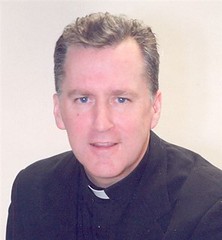Advent is a time of preparation for the coming of Christ. But there are two comings of Christ. His first coming when he was born of the Virgin Mary in Bethlehem and his second when he will come again in glory at the end of time. And so the Church divides Advent into two parts.
The first part which begins on the First Sunday of Advent and lasts until December 16 emphasizes the preparation for the second coming of Christ. Advent should be a joyful time. A large part of the joy of Christmas is the waiting in joyful expectation for it. If we prepare in the right spirit for Christmas we will not only enjoy our Christmas morning but the time of preparation as well.
Advent should be a time when we renew our Christian commitment. We should seek during this time to deepen our relationship with Christ so that when we appear before him as judge, we won’t hear those awful words "I never knew you. Depart from me into the everlasting flame prepared for the devil and his angels." (Matthew 7, 23)
During Advent, we should seek to find ways to deepen our longing for the second coming of Christ. The early Christians had an intense yearning for it. We pray the Our Father at every Mass asking God that His Kingdom will come. The way to grow in our relationship with Christ and deepen our longing for his second coming is through prayer and the Sacraments. Christ is present in a spiritual way everywhere and so we can pray to him wherever we are. We need to deepen our consciousness of his presence in everything we do. This is what St. Paul means when he says "pray constantly." (1. Thess. 5, 17)
Now, although Christ is present everywhere in a spiritual way, in the Blessed Sacrament he is present in his full human reality - Body, Blood, Soul and Divinity. In the Holy Eucharist, union with Christ is accessible here and now. We should take time during Advent to come before Christ in the tabernacle to tell him how much we love him. That we trust in him and that we want to be with him. This would be a good time for us all to get back the habit of genuflecting to Christ in the Blessed Sacrament or to start doing so if you never have. So many Catholics walk right by Jesus in the Blessed Sacrament as if he wasn’t there.
To pray before Jesus in the tabernacle is a good way to increase our desire for union with him in Holy Communion. In this Sacrament we have a deeper union through faith than a husband and wife can have in sexual intercourse. In our union with Christ, it is no longer us who lives but Christ lives in us. By ourselves it is impossible to overcome sin and temptation but with Christ’s help it is possible. In the Sacrament of Holy Communion, we begin to experience union with Christ which will be brought to fulfillment after we die. We need to prepare ourselves for this union as well or else it will become very routine. First of all we should be sure to receive Jesus in the state of grace. This means if we have committed any mortal sins we should go to Confession before receiving Holy Communion. A mortal sin is anything the Church teaches is seriously wrong when the person knows that it is wrong or should know and does it of his own free will. But it's a good practice to go to comfession once each month even if we are not conscious of any mortal sins that we have committed.
It is not true that all you have to do to receive Holy Communion is to make a good act of contrition if you have committed a mortal sin. Also if you are not able to receive you must still go to Mass, and that Mass will still have value for you because you can unite your prayers with the priest’s prayers as Jesus is being offered to the Father. The sacrifice of the Mass is most powerful prayer and you need the help you receive from it to avoid worse sins, overcome temptations and help you get the courage to reconcile yourself to God through His Church as he desires. Like the early Christians, we should have an intense yearning for the second coming of Christ. We don’t know when that will be but we know at least that our personal end would come at any time.
So we must prepare ourselves. If we are prepared then we have nothing whatsoever to fear. To prepare ourselves for Christ’s second coming we must deepen our consciousness of Christ’s presence now in our own lives in the daily comings of Christ - in the disguise of the poor, the unborn child, the sick, the eldely and the handicapped and also under the appearances of bread and wine. Only if we prepare ourselves in this way will we hear Christ’s words "Come, you who are blessed by my Father. Inherit the Kingdom prepared for you from the foundation of the world." (Matthew 25, 34)
For more information see:
"The Two Parts of Advent":
http://www.creighton.edu/CollaborativeMinistry/Advent/advent-2parts.html
For the official teaching of the Catholic Church on Christ’s Second Coming see: http://www.vatican.va/archive/catechism/p1s2c2a7.htm
For more explanation of the Catholic teaching on this topic see: Catholic teaching on the end times: http://www.conventhill.com/endtimes/
For an explanation of what the Catholic Church teaches about the “Rapture” see: http://www.catholic.com/library/Rapture.asp
For Bible passages describing Christ’s second coming: http://www.jesusiscoming.com/Scripture.htm
---end---
Wednesday, November 23, 2005
Subscribe to:
Post Comments (Atom)

No comments:
Post a Comment